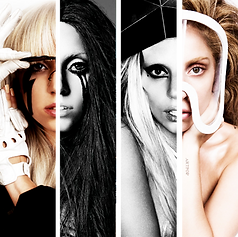

From Mass Culture to Metafiction

After doing my research on pop as a genre, I went on to study the concept of postmodernity for paper 4 and whilst watching a YouTube video on the topic (linked below), it dawned upon me that pop and postmodernism are rather interconnected topics. Hence in this blog post I will further elaborate upon the interplay between this genre and cultural shift
Instead of grand narratives highlighted by modernity, postmodernity embraces fragmentation, subjectivity, and multiplicity. It acknowledges the diversity of human experiences and the limitations of any single story to capture the complexities of the world leading to a deconstruction of traditional hierarchies, questioning established power structures and dominant interpretations of history, culture, and knowledge.
Modernity embraced historical progress towards a utopian ideal labeling man as the pinnacle of life itself, yet postmodern thinkers argued that these narratives were overlooking the diverse experiences and perspectives of different cultures and individuals. They pointed out that these narratives often masked power structures and inequalities thus serving the interests of the dominant groups while marginalizing others.
Postmodernity embraces fragmentation, subjectivity, and multiplicity whilst acknowledging the diversity of human experiences and the limitations of any single story to capture the complexities of the world.

You may think that pop music and postmodernity are two seemingly disparate phenomena (stay with me on this), yet they share a fascinating and intricate relationship as both emerged in the mid-20th century, reflecting and shaping the cultural shifts that characterized this era. While examining their interconnection I found that postmodernity's influence led to changing landscape of art, culture, and society.
Pop music seems on the surface to be about instant gratification, not intellectual discourse. Yet, delving deeper revealed a fascinating connection with the philosophical movement of postmodernity to me. Here, we explore this unexpected pairing.
Postmodernity, in a nutshell, challenges grand narratives which in simple words are those overarching stories that claim to explain everything (kind of goofy of us to assume we could do that). Modernity for example, believed in progress as humanity's inevitable path. However, postmodern thinkers such as Fredric Jameson along with Jean-Francois Lyotard argued that such narratives often masked inequalities and overlooked diverse experiences.
Pop music, with its focus on relatable themes and fleeting emotions, resonates with this rejection of grand narratives by offering bite-sized stories about love, loss, and everyday experiences. This fragmented approach aligns with the postmodern emphasis on individual perspectives, creating a mosaic of personal experiences rather than a single, universal story.
The genre's constant borrowing and blending of elements from other styles further mirrors postmodernity's emphasis on intertextuality and pastiche. Just like a postmodern film might reference various styles (my personal favourite being 'Spiderman: Across the Spiderverse'), a pop song can seamlessly weave together elements of electronica, rock, and hip-hop. This creates a hybrid soundscape that defies easy categorization. Thus, reflecting the postmodern notion that meaning is not inherent but constructed through individual interpretation.
The performative aspect of pop also chimes in with the postmodern spirit. Pop stars often cultivate larger-than-life personas, blurring the lines between reality and performance. This echoes the postmodern emphasis on performativity, where identity is seen as something constructed and constantly evolving, rather than a fixed essence. Lady Gaga and Taylor Swift's ever-changing image perfectly exemplifies this, challenging the idea of a single, static identity.
While some might argue that pop music prioritizes commercial success over artistic merit, its contribution to the cultural dialogue of postmodernity cannot be ignored. By reflecting and shaping the anxieties and values of the era, pop music serves as a valuable lens through which we can understand the cultural shifts that define the postmodern age.
All in all, the connection between pop music and postmodernity is a multifaceted and mutually influential one. Pop music acts as both a reflection of, and a catalyst for, the cultural shifts of the postmodern era. Its embrace of fragmentation, irony, and the constructed nature of reality mirrors the core tenets of postmodern thought, while its focus on individual experiences and entertainment contributes to the shaping of a postmodern world. Examining their relationship led me to gain a much deeper understanding the broader cultural landscape of postmodernity.

